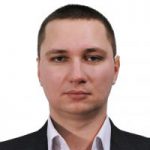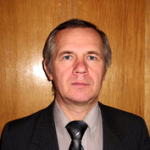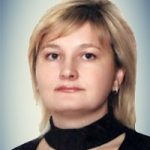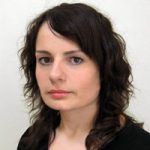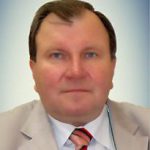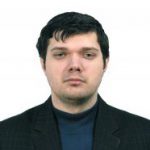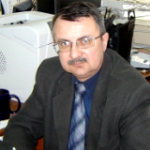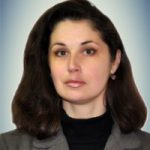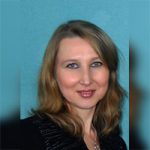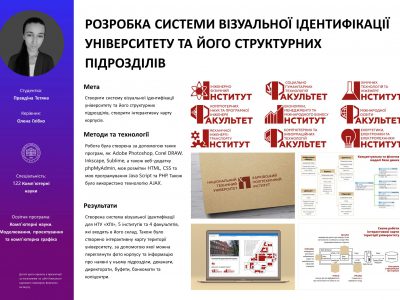175
Information
and measurement technologies
«Метрологія – наука про вимірювання, методи і засоби забезпечення їх єдності та способи досягнення необхідної точності. Власне питаннями, якими опікується метрологія:
- Як отримати інформацію від об’єкта дослідження?
- Які засоби застосувати при цьому?
- І врешті-решт – як оцінити якість цього вимірювання?
Метрологія займається розробкою нових методів вимірювання та передачею інформації та еталонів користувачам. Якість вимірювань та вихідних даних для прийняття рішень, зокрема автоматизованих рішень, здатне критично вплинути на кінцевий результат – забезпечити якість або спотворити, реалізувати або невілювати ефективність будь-яких складних інтелектуальних алгоритмів сучасної техінки та виробництва.»

“Metrology is the scientific study of measurement. It establishes a common understanding of units, crucial in linking human activities. Metrology is divided into three basic overlapping activities:
- The definition of units of measurement;
- The realisation of these units of measurement in practice;
- Тraceability—linking measurements made in practice to the reference standards.
Metrology is concerned with the development of new measurement methods and … concerned with the applications their use, ensuring the suitability and development and usage of measurement instruments, their calibration and quality control.“
Bachelor
of information and measurement technologies
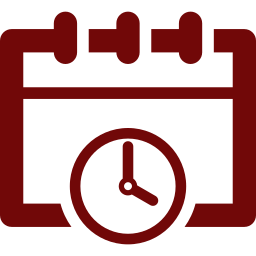
Training period
4 years / 240 ECTS credits

The form of study
full-time
correspondence

Навчальний план.
characteristics of the educational program
The main focus of the educational program: an educational and professional program focused on the formation of a specialist in the field of metrological support, development and application of measuring instruments; development and operation of information and measurement systems for various purposes; development and implementation of systems for non-destructive monitoring of the condition of research objects, determination of their parameters and diagnosis of suitability of elements for further use.
Features of the program
A creative approach to the organization of the educational process (STEM, project-based learning)
Close cooperation with the National Scientific Center "Institute of Metrology" and leading enterprises of Kharkiv. Some of the students have the opportunity to study in programs that provide an opportunity to gain knowledge while working at the Institute of Metrology.
We are ready to use all existing technologies - from elementary scales to ultra-complex space systems
Our graduates know exactly how to connect the analog surrounding world with modern digital technologies
After studying in the 1st year, there is a choice of the following educational trajectories:
Professor BALIEV VOLODYMYR (guarantor of the bachelor’s educational program) Candidate of technical sciences | Docent KHOMIAK YURII Candidate of technical sciences | |
Professor MYHUSHCHENKO RUSLAN Vice-rector for scientific and pedagogical work Doctor of Engineering | Professor SUCHKOV HRYHORII Doctor of Engineering | |
Professor TVERYTNYKOVA OLENA Doctor of historical sciences | Docent NOZDRACHOVA KATERYNA Doctor of Engineering
| |
Professor KONDRASHOV SERHII Doctor of Engineering | Docent PLIESNETSOV SERHII Doctor of Engineering | |
Professor HORKUNOV BORYS Doctor of Engineering | Professor SIRENKO MYKOLA Candidate of technical sciences | |
Docent CHUNIKHINA TETIANA Candidate of technical sciences | Docent HRYHORENKO SVITLANA Candidate of technical sciences |
.
Educational trajectory – Metrology and measuring technology
Designing means of measuring electrical and non-electrical physical quantities, their metrological support. In the course of training, you will acquire the knowledge necessary for the development of analog and digital measuring equipment, learn to program and use modern microprocessor tools using various modern programming languages. You will master the development of modern digital measuring tools, their integration using modern interfaces into systems of various purposes. You will get the necessary knowledge of the theory of measurement errors, the methodology of their detection and reduction of their impact in various conditions of using modern measuring equipment.
Learn more about the educational trajectory- Metrology and measuring technology on the website of the department
Educational trajectory – Information and measurement systems
Development and operation of information and measurement systems for various purposes; development of software and algorithmic means of implementing management methods in information and measurement technologies. Our graduate is able to:
- apply computer technology and develop applied software products to solve technical problems;
- professionally identifies sources of errors in measurements, chooses methods and modes of measurement that allow to minimize the influence of various factors on measurement results, as well as use special methods for determining such errors (measurement uncertainties);
- uses microprocessors in the design and modernization of centralized and decentralized information and measurement systems;
- knows how to develop system software of such systems.
Learn more about the educational trajectory – Information and measurement systems on the website of the department
Educational trajectory – Computer and radio-electronic control and diagnostic systems
The direction combines the tasks of control, metrological assessment, instrumentation, radio electronics and software development. From a professional point of view, the formation of competencies takes place in the following directions:
- general engineering training in the field of automation and instrumentation;
- metrology and metrological support;
- electronics and programming;
- standardization and certification;
- non-destructive testing and technical diagnostics.
Learn more about the educational trajectory – Computer and radio-electronic control and diagnostic systems on the website of the department
Graduates' suitability for employment and further education
Learn more about the companies and enterprises that offer employment for students and graduates of our institute, as well as familiarize yourself with the requirements, duties and skills of candidates for current vacancies, possibly by following this link.
A student who has completed training under this educational program and received a bachelor’s degree can continue his studies in universities of Ukraine and abroad to obtain the next (master’s) level of higher education in the relevant educational-professional or educational-scientific programs.
Приклади студентський дипломних робіт
If you are our graduate, leave your feedback, it is important for us to hear your opinion. Please fill out, this survey form.
We are on social networks:
Спеціальності 105 Прикладна фізика та наноматеріали надається особлива підтримка. Подаючи заяву з 1-м пріоритетом на цю спеціальність, Ви значно збільшуєте свої шанси на вступ на бюджет!
РОЗРАХУНОК КОНКУРСНОГО БАЛУ для вступу на спеціальність 105 Прикладна фізика та наноматеріали
КБ = 0,5×П1 + 0,2×П2 + 0,2×П3 + 0,1×А
П1 – оцінка з української мови
П2 – оцінка з математики
П3 – оцінка з фізики або іноземної мови
А – середній бал атестата
Остаточно конкурсний бал (КБ) множиться на додаткові коефіцієнти. Регіональний 1,02 – для міста Харкова. Галузевий 1,02 – для поданих заяв з пріоритетністю 1 та 2 на спеціальності, яким надається особлива підтримка. Сільський 1,05 – для осіб, зареєстрованих у селах та які здобули повну загальну середню освіту у закладах освіти у рік вступу, що знаходяться на території сіл, для спеціальностей, що користуються особливою підтримкою.

